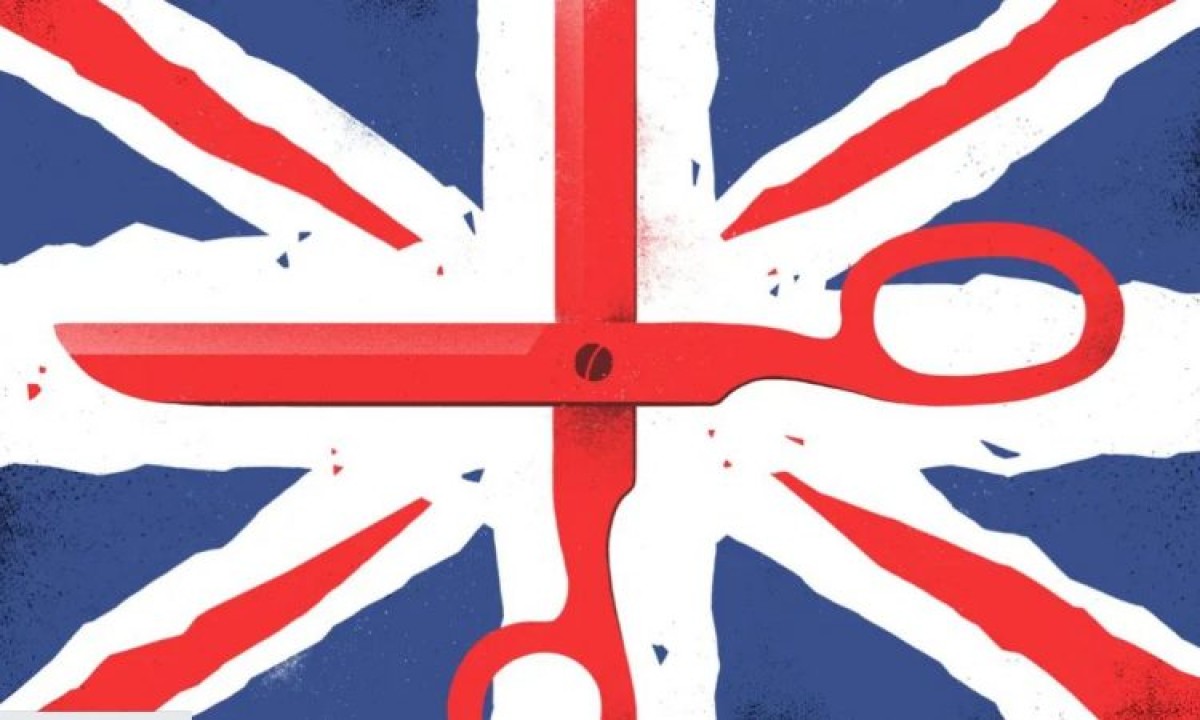 97
97
The landslide victory of pro-separatist candidates in Northern Ireland’s election suggests that though seceding from Britain is a likely scenario in the unforeseeable future, the long-held dream of unification with the Southern republic of Ireland is still a very long way off, given deep religious and sectarian divisions. In any event, local election outcomes in Northern Ireland serve as a harbinger of greater political storms to come.
On the other hand, as a result of the grave schisms that were brought about by the 2016 Brexit referendum, Edinburgh will undoubtedly be in a better financial position if it breaks away from the union it formed with Britain in 1701. Sinn Féin also announced that Brexit should be a good cause for North Irland’s independence referendum.
According to British political commentators, these looming crises might eventually cost the United Kingdom its very existence, as Scotland and Northern Ireland have both voiced their vehement disagreements with 10 Downing Street’s Brexit strategies.
Despite the fact that Scotland voted against independence in 2014, the Brexit controversy has reignited secessionist sentiments as most Scots seek to remain in the EU for economic considerations. Today, various surveys indicate that more Scots favour independence since a vast majority of them believe that cessation from the UK would offer Scotland a more prosperous economic future.
Sinn Féin, a pro-independence republican-socialist party, hailed its first victory in the Northern Ireland Assembly elections as a watershed moment for the British-occupied region, calling for new discussions on Ireland’s unification. Sinn Féin won the election with 27 seats, against the pro-British Democratic Unionist Party (DUP) with 25 seats. The fact that Sinn Féin has won a majority of seats in the Northern Ireland Assembly for the first time in a century is quite remarkable.
Sinn Féin is now considered the most heavily resourced party on the Irish island.
Although Sinn Féin’s leaders make no secret of their desire to unite with their Southern Irish brethren, it seems doubtful that a united country of Protestants and Roman Catholics can be established; since 80 per cent of the Northern Irish practice Protestantism, whereas the sizable majority of the Southern Irish adhere to Roman Catholicism.
In the fallout of acrimonious elections, Sinn Féin’s vice-president, Michelle O’Neill, stated that “today represents a unique moment of change. This [victory] is a defining moment in our policies and for our people. Now, an honest dialogue must take place to unify our region with the Republic of Ireland.”
Mrs O’Neill continued by adding that Sinn Féin’s triumph would have no dramatic impact on Northern Ireland’s political status since holding a referendum to break away from the United Kingdom is up to Westminster and would likely take years to take place. However, the symbolic victory of Sinn Féin is crucial since it heralds the end of a long century of pro-British party dominance in Northern Ireland.
Meanwhile, the pro-London Democratic Unionist Party (DUP), one of the driving forces behind Britain’s exit from the European Union, has attributed its dwindling popularity to its role in post-Brexit negotiations between London and Brussels, which led to trade restrictions between Northern Ireland and the rest of the UK. As a matter of fact, the DUP’s abject failure to find a solution to Northern Ireland’s Brexit conundrum led many citizens to not go to the ballot box, naturally resulting in the victory of the Irish nationalists.
In light of the fact that many in Northern Ireland were disappointed by Britain’s vote to exit the European Union, the victory of Irish nationalists affiliated with Sinn Féin was much anticipated. It is a widely held notion that the DUP suffered a grave setback in the Assembly elections as a direct consequence of its inability to find a viable solution vis-à-vis other EU members that would assuage the financial concerns of Belfast.
Even though Northern Ireland may secede from the United Kingdom at some point in the near future, the island of Ireland will unlikely be united because of the fundamental religious divisions.
Comment
Post a comment for this article